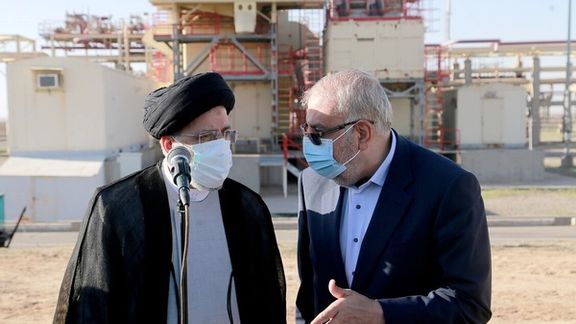Iran Dangles The Prospect Of Higher Energy Exports Amid Nuclear Talks

Iran once again Friday highlighted the importance of the country’s oil for global markets, as diplomats were meeting in Vienna to revive the 2015 nuclear deal.

Iran once again Friday highlighted the importance of the country’s oil for global markets, as diplomats were meeting in Vienna to revive the 2015 nuclear deal.
The government’s official news website IRNA published an article Friday with the headline, “Iran’s bargaining power increased by boost to oil production,” claiming that the country can already produce 3.8 million barrels of oil per day.
The claim sounded hollow, as Iran’s oil minister Javad Owji announced in May that his ministry can boost oil production two months after a nuclear deal is reached, hopefully achieving 3.8 million barrels a day capacity.
In recent weeks, as Tehran has been trying to gain more concessions in nuclear talks with the United States, officials have increasingly dangled the prospect of helping Europe in the current energy crisis. They have argued that the only impediment is a lack of political will in Washington, meaning readiness to make concessions.
Even if Iran can produce 3.8 million barrels of crude p/d, its domestic consumption is around 1.7 million barrels, leaving roughly 2 million barrels for export. Currently Iran is shipping around 700-800 thousand barrels p/d, so its additional contribution to world markets would be a little over one million barrels per day.
This addition to world oil supplies can help, but Europe’s more acute need is for natural gas, in which Iran can hardly help despite holding the world’s second largest reserves. The reason is insufficient investments for decades that has led to a fall in production. If a nuclear deal materializes and major Western energy companies enter ventures in Iran to expand gas production, it could potentially export an undetermined quantity to Europe, most probably in liquified form.
But that can take years and can only materialize if a new nuclear agreement holds and no new complications emerge as a result of Iran’s actions in the volatile region.
IRNA’s claims of having achieved a larger production capacity and 40-percent higher revenues in energy exports is also related to Iran’s domestic politics. Economic conditions have seriously deteriorated since President Ebrahim Raisi took office exactly one year ago, and government claims of success in increasing export revenues are meant to take credit amid an avalanche of criticism.
The argument that Iran holds the trump card in the nuclear negotiations even reached the clerics. Tehran’s Friday Prayer Imam, Haj Ali Akbari said in his sermon that “when you need an agreement with us, accept Iran’s conditions and do not make too many demands.” He also warned the West “not to test Iran.”
But in fact, the West can say that economic pressure is on Iran as its annual inflation rate has reached 54 percent and prices for all essential food items have more than doubled in the past 12 months.
A table published by Etemad Online news website in Tehran on Saturday showed cooking oil became 367 percent more expensive since Raisi took office, while price of Rice climbed 200 percent and pasta 168 percent.